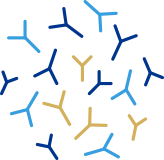Human milk is an important source of the beneficial probiotic bacteria that’s essential in the crucial first few months of an infant.

Probiotics are live microorganisms, which when administered in adequate amounts, confer a health benefit to the host1. As well as being found in common foodstuffs, such as fermented milk, fermented vegetables and yoghurt, they are also present in human milk. In fact, human milk contains around 103-104 cfu*/ml, making it a rich source of potential commensal bacteria for the infant2,3. Indeed, human milk contains viable and non-viable bacterial cells and fragments, e.g. Streptococcus, Staphylococcus, Lactobacillus and Bifidobacterium4-6.
The milk microbiome
Although the composition and number of bacteria vary widely among individuals, depending for example on the geographic location, human milk is considered to be an important source of beneficial probiotic bacteria in the crucial first days and weeks of an infant’s life. The milk microbiome may thus be regarded as an inoculum for the infant’s gut, essential in programming the immune system to respond appropriately to (food-) antigens, pathogens and commensal bacteria7. Indeed, probiotic bacteria play an important role in the immune system provided by the gut as they compete with potentially harmful bacteria to attach themselves to the lining of the gut, thus preventing infection. These probiotic bacteria also encourage cells lining the gut to produce more and thicker ‘mucus’ that stops harmful bacteria getting into the blood stream and the rest of the body8.
Reduction of allergic symptoms
Bifidobacterium breve is commonly found in the gut of healthy breastfed infants and also in human milk. Our preclinical research has demonstrated that Bifidobacterium breve M-16V is the most promising strain in reducing allergic symptoms and has been shown to have anti-allergic properties9. It has also demonstrated synergistic benefits when combined with our unique prebiotic mixture scGOS/lcFOS** (9:1)10,11.
Selected among 400 different strains and supported by >17 clinical studies, including in preterm babies, since 1994, B Breve M16V has been clinically proven to:
- Improve allergic symptoms in infants with IgE-mediated atopic dermatitis12
- Improve diaper dermatitis and gastrointestinal symptoms12
- Prevent asthma-like symptoms13
*CFU: colony forming unit
**Short-chain galacto-oligosaccharides and long-chain fructo-oligosaccharides
References
- Martin, Rocio, et al. “Early life: gut microbiota and immune development in infancy.” Beneficial microbes 1.4 (2010): 367-382.
- Martín, Rocío, et al. “Human milk is a source of lactic acid bacteria for the infant gut.” The Journal of pediatrics 143.6 (2003): 754-758.
- Perez, Pablo F., et al. “Bacterial imprinting of the neonatal immune system: lessons from maternal cells?.” Pediatrics 119.3(2007): e724-e732.
- Jost, Ted, et al. “Assessment of bacterial diversity in breast milk using culture-dependent and culture-independent approaches.” British Journal of Nutrition 110.7 (2013): 1253-1262.
- Bergmann, Henrike, et al. “Probiotics in human milk and probiotic supplementation in infant nutrition: a workshop report.” British Journal of Nutrition 112.7 (2014): 1119-1128.
- Hunt, Katherine M., et al. “Characterization of the diversity and temporal stability of bacterial communities in human milk.” PloS one 6.6 (2011): e21313.
- Donnet-Hughes, Anne, et al. “Potential role of the intestinal microbiota of the mother in neonatal immune education.” Proceedings of the Nutrition Society 69.3 (2010): 407-415.
- Das UN. Essential fatty acids as possible enhancers of the beneficial actions of probiotics. Nutrition 2002;18(9):786.
- Hougee, S., et al. “Oral treatment with probiotics reduces allergic symptoms in ovalbumin-sensitized mice: a bacterial strain comparative study.” International archives of allergy and immunology 151.2 (2010): 107-117.
- van Esch, Betty CAM, et al. “Post‐sensitization administration of non‐digestible oligosaccharides and Bifidobacterium breve M‐16V reduces allergic symptoms in mice.” Immunity, inflammation and disease 4.2 (2016): 155-165.
- Schouten, Bastiaan, et al. “Cow milk allergy symptoms are reduced in mice fed dietary synbiotics during oral sensitization with whey.” The Journal of nutrition 139.7 (2009): 1398-1403.
- Van der Aa, L. B., et al. “Effect of a new synbiotic mixture on atopic dermatitis in infants: a randomized‐controlled trial.” Clinical & Experimental Allergy 40.5 (2010): 795-804.
- Van der Aa, L. B., et al. “Synbiotics prevent asthma‐like symptoms in infants with atopic dermatitis.” Allergy 66.2 (2011): 170-177.
BA19-485
